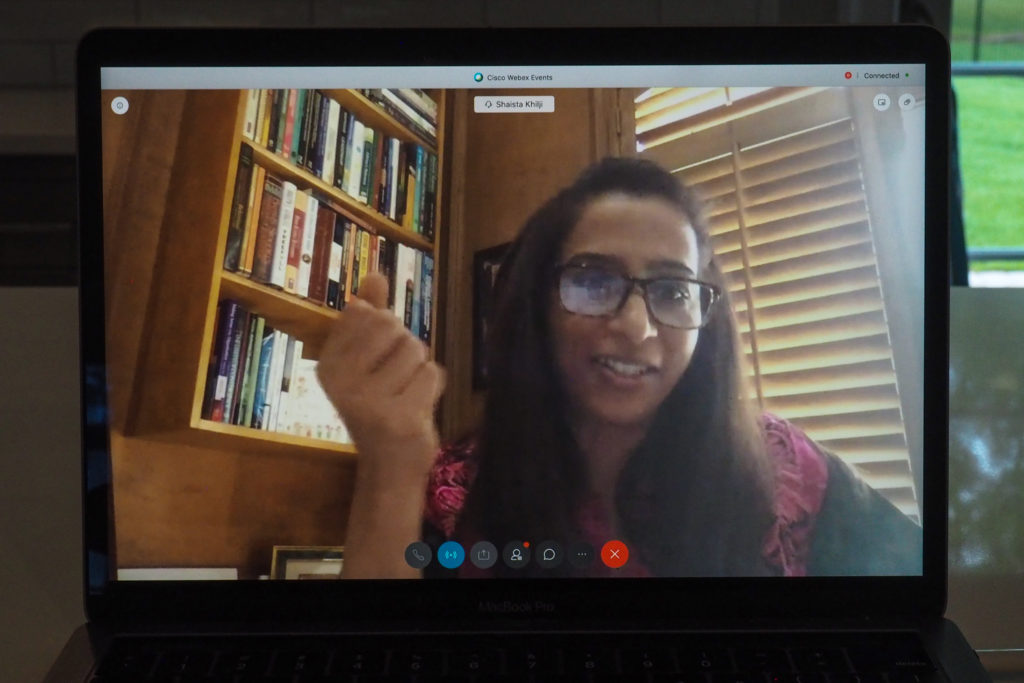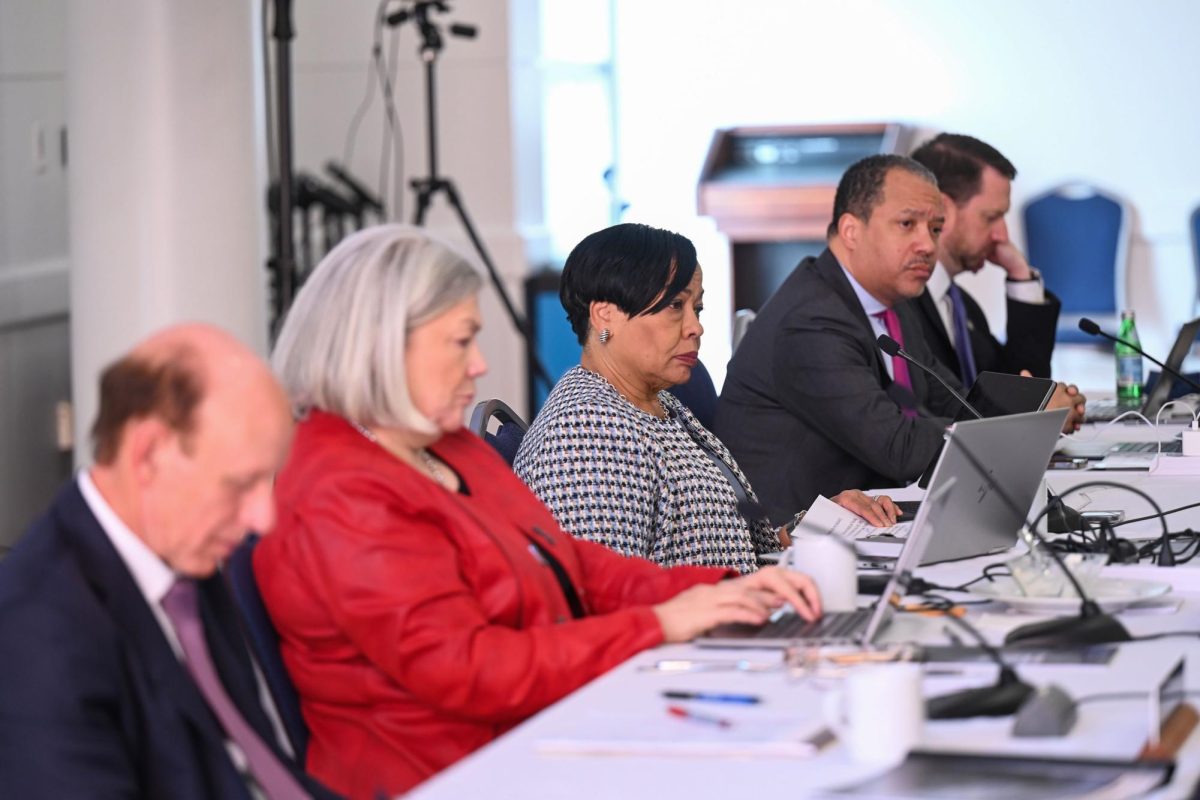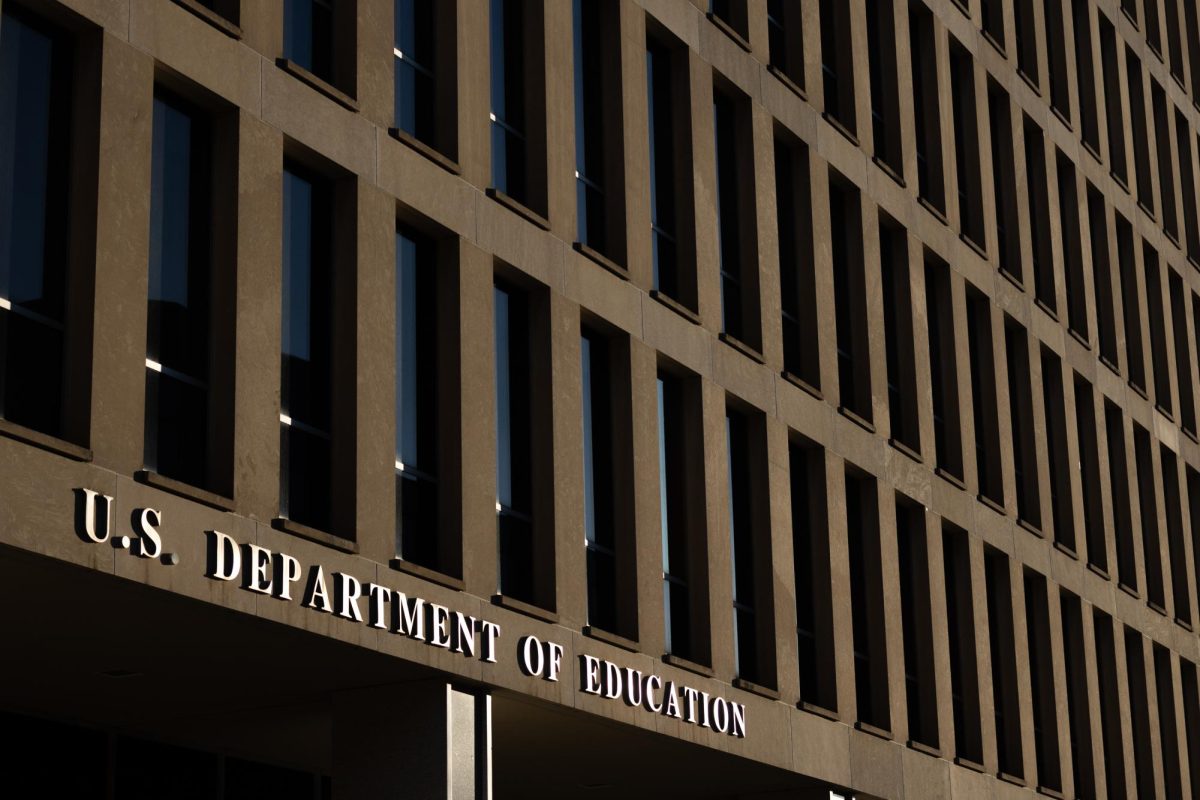The Faculty Senate overwhelmingly endorsed a set of shared governance principles Friday, a major milestone in GW’s initiative to pave the way for a prosperous presidential search by improving collaboration among faculty, administrators and the Board of Trustees.
With the search for a new University head expected to begin in the coming months, the shared governance framework aims to move past recent mistrust between the groups in decision-making. Trustees are expected to sign off on the set of principles next month, which would serve as the product of the monthslong initiative brought about by the end of former University President Thomas LeBlanc’s tumultuous tenure.
The senate approved the principles in a 30-1 vote, with Miriam Galston, the senate’s outgoing vice chair, casting the sole opposing vote. Galston declined to comment.
The shared governance principles do not amend GW’s governing documents, but they officially recognize the faculty as having a meaningful role in “key decision-making” and the primary responsibility for “specific areas” related to GW’s academics. They also recommend key implementation mechanisms, like evaluating the University president’s commitment to the shared governance framework as a metric in the Board’s periodic evaluations.
A task force led by three co-chairs, each representing faculty, administrators and trustees, has been developing the document of principles for months, a collaborative effort that faculty senators and officials championed at Friday’s meeting. They said they hope the principles will serve as a living document that will continue to evolve.
“I think we should be really proud and happy that we will not find ourselves with a future administration – and I emphasize future, I’m not criticizing the current administration – that might be tempted to misrepresent one to the other as may have happened previously,” Arthur Wilson, the senate’s executive committee chair, said at the meeting.
The principles include recommendations for an orientation among faculty, administrators and trustees so they can better understand each other’s roles and concerns. Faculty senators also endorsed recommendations to convene biannual meetings between the Board and the senate executive committee and to conduct campus climate and shared governance surveys every few years.
Board Chair Grace Speights created the shared governance task force after she began meeting with Wilson on how GW could define shared governance in May, roughly when LeBlanc announced his retirement as University president. LeBlanc’s tenure ended in a crisis of confidence, largely the result of faculty’s criticisms that they were left out when officials planned a major enrollment cut.
Speights announced in the fall that the Board would delay the search for LeBlanc’s permanent replacement, and he would move up his retirement to the end of the fall semester. Speights cited a need to first strengthen shared governance to place GW in the best position possible to attract presidential talent amid the large number of ongoing searches nationwide.
“We wanted to establish the general principle that we’d be working collaboratively to address these and identifying these issues, with the understanding that we’ll be doing that this year, next year and through the out-years into our third century,” Provost Chris Bracey, who served as the task force’s administration co-chair, said at the meeting.
Speights announced in September that Mark Wrighton would assume the University presidency in an interim capacity as officials continued on with the initiative. Upon taking office, Wrighton has highlighted the initiative as one his first priorities.
“I believe the documents that we have are going to serve us well,” Wrighton said at the meeting. “This has been indicated as a living document. I, for one, look forward to working with Chris Bracey, with the faculty and of course with the Board of Trustees to implement what we have resolved.”
Speights created the University-wide task force to spearhead the principles’ development, committing that administrators and faculty would endorse the framework before trustees vote in May.
Wilson said the task force began with a “frustrating” start because trustees wanted to focus more on the University’s future while faculty wanted to address why the initiative was necessary.
He added that trustees expressed concerns to the task force about the lack of a singular professor who could speak for all faculty. Wilson said the task force identified the senate and the Faculty Assembly – a group open to all faculty with full-time professors as voting members – as the primary faculty conduits for the Board to engage.
“Over time, I think the trustees came to realize that we were as fully committed to the good of the University as anybody,” Wilson said.
Wilson and other faculty senators repeatedly praised Shaista Khijli, a faculty senator who served as the task force’s faculty co-chair, for her work on the shared governance task force. One senator even referred to her as a “hero” at Friday’s senate meeting.
Khijli called the task force’s work a “high-stakes” initiative.
“After what many of us consider to be very difficult years at GW, we were forced to listen to each other, and I’m confident that we created some good will,” Khijli said.
Khijli and other task force members conducted a series of town halls in January to solicit input before the team released a survey for faculty, administrators and trustees to comment on shared governance in February.
The survey revealed splits on how the three constituencies believe new University presidents and provosts should be chosen alongside agreements that decisions on issues like campus planning and admissions should be a joint effort. Faculty senators acknowledged that future disagreements are inevitable but portrayed a sense of optimism that past tensions can be avoided.
“We may have different perspectives, but we need to come together to build a stronger GW in its third century,” Khijli said.











